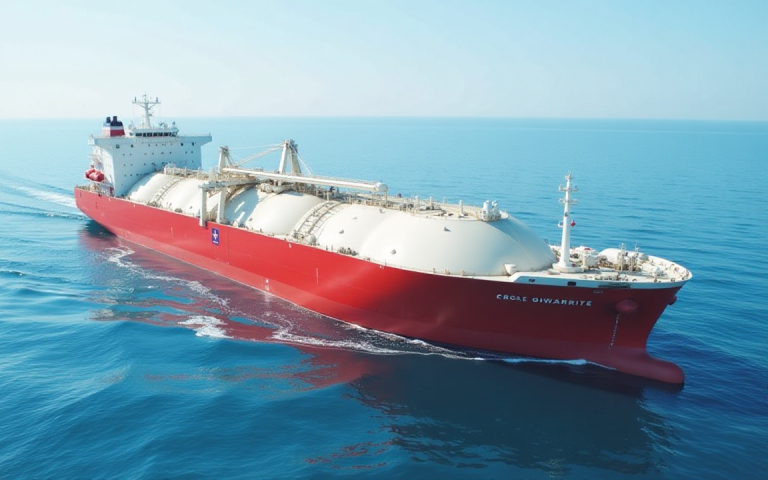LNG prices experienced a decline in both European and Asian markets this week, driven by a noticeable slowdown in competition for spot cargoes between the two regions, Rystad Energy said.
“In Asia, even with ongoing heat across Japan and South Korea, gas demand remained subdued as strong nuclear and coal-fired generation met much of the power load,” Mathieu Utting, analyst at Rystad Energy, said in an emailed commentary.
Additional supply from LNG Canada and Asian liquefaction plants resuming operations after maintenance is expected to add further downward pressure on spot prices.
Meanwhile, in the US, NYMEX prices fell due to record-high natural gas production, which offset demand.
Additionally, feedgas supplies to LNG terminals held steady, even with minor disruptions at Elba Island and Freeport LNG.
Asia
Asian spot LNG prices for September fell 2.7% to $12 per MMBtu, while October derivatives prices, a more liquid contract, dropped 2.9% to approximately $12 per MMBtu on July 22, according to Rystad.
This decline was partly due to the resumption of full operations at Gorgon LNG’s train 3, which had undergone short-term maintenance from July 17-20.
Further downward pressure on Asian spot LNG prices for late-summer delivery is anticipated with upcoming maintenance from other Asian liquefaction projects, such as Sakhalin 2, and new supply from LNG Canada, the Norway-based energy intelligence company said.
However, the majority of US-origin LNG shipments are expected to head to Europe, as the arbitrage for Asia has remained closed since early July.
Japan’s LNG inventory for major power utilities rose 3% to 1.92 million tons, 1% below end-July 2024 levels, and 11% below the five-year average.
Japan and South Korea issued heatwave warnings for the majority of their country on 22 July.
Heatwaves
Heatwave warnings were issued across most of Japan and South Korea on July 22.
Through August 15, both countries are expected to experience continued hot weather. Japan has a 60% probability of above-normal temperatures beyond July.
Rystad added:
Still, buying interest so far from importers across northeast Asia has remained muted, weighing on spot prices as demand for cooling has so far been met through coal-fired power generation.
In the coming months, there will likely be an increase in downstream gas-fired power generation, the agency said.
However, this will probably be counteracted by a 19% increase in nuclear capacity and a 33% increase in coal-fired capacity compared to the same period last year.
Europe
European gas prices fell this past week due to decreased Asian demand, which reduced competition for cargo shipments between the two markets.
As a result, the Northwest Europe LNG price for August, which has been steadily declining since July 16, was $11.3 per MMBtu on July 22, a 1.32% week-over-week decrease.
The TTF benchmark also dropped 2.42% week-over-week to $11.6 per MMBtu on the same day, narrowing the differential from $0.40 on July 15 to $0.21 on July 22.
LNG buyers have been able to secure wider discounts on TTF gas prices.
This is because closed arbitrage kept loaded cargoes within the Atlantic Basin, leading to rapid LNG deliveries to Europe and making previously expensive regasification terminals in northwest Europe financially viable once more, Rystad said.
Last week, Europe’s imports reached 2.31 million tonnes, an 8.5% week-over-week increase.
This surge in imports is intended to replenish inventories in anticipation of the upcoming winter season and continued strong cooling demands through July.
US prices
The Henry Hub gas prices on the New York Mercantile Exchange were currently around $3.11 per MMBtu, which is more than 8% down from last week.
“Despite the ongoing heatwave in the southern and eastern regions buoying gas-for-power, record output – exceeding 108 billion cubic feet a day (Bcfd) from 18-20 July – has been a drag on prices,” Rystad said.
Despite anticipated strong gas-for-power demand due to persistent widespread heat forecasted across the Midwest, Mid-South, and East Coast through month-end, current supply levels are expected to overshadow this demand, leading to a likely muted price reaction, the agency added.
Last week, companies injected unusually large volumes into storage, exceeding the 5-year average by 6%.
This increase is a direct result of elevated supply.
The post LNG markets see price drop as supply outpaces subdued demand appeared first on Invezz

